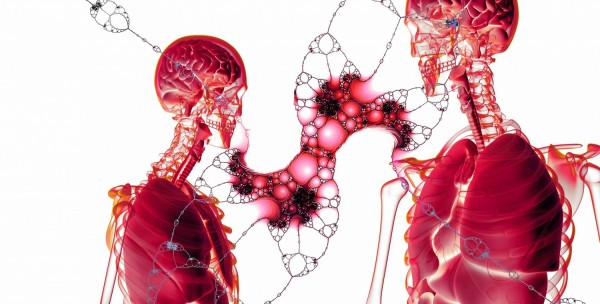New Drug Offers Hope Against Multiple Sclerosis, Study Says

autoimmune response attacks the myelin sheath surrounding cells causing communication problems between the brain and the rest of the body.
A new study suggests that immunotherapy has shown success against multiple sclerosis (MS) in animals can also be beneficial for humans. Thomas Jefferson University researchers study a drug that will prevent the myelin sheath, a protective layer surrounding the cells being attacked by immune system cells.
In a statement, Thomas Jefferson University chairman of the Department of Neurology, Dr. Abdolmohamad Rostami, said that the study is a huge advantage of the antigen-specific method over the current therapies, which according to him is compared to a sledgehammer to the immune system. He added that there are many possible immune-activating antigens in the myelin sheath. The biggest challenge is that they still do not know which component of the myelin sheath is triggering MS patients' immune response.
According to Thomas Jefferson University, multiple sclerosis is an autoimmune disorder that develops as the body's immune system that attacks the central nervous system. Mayo Clinic added that in MS, the immune system attacks the myelin sheath that covers the nerve fibers resulting in communication problems between the brain and the rest of the body. WebMD further said that this disease can cause a problem with vision, balance, muscle, and other body functions. National Health Service (NHS) said that this disease's symptoms include fatigue, difficulty in walking, numbness or tingling in different parts of the body, muscle stiffness and spasms, vision problems, balance problems, and coordination problems with thinking, learning, and planning.
According to Rostami, past studies have used single myelin antigens or combinations of antigens to avert autoimmunity in animal models. However, it has limited success in humans.
READ ASLO: Studies Finds Link Between Cancer Risk and Multiple Sclerosis Patients
The methodology of the researchers
According to Thomas Jefferson University, the researchers looked at the cells called oligodendrocytes that wrap their cell membranes around nerve cells to produce the myelin sheath. Cultured oligodendrocytes have extracellular vesicles (EV) that, according to the researcher, can be harvested and contains almost all the relevant myelin antigens. The researchers added that there would be a higher chance to stop the autoimmune attack on the myelin sheath with all the antigens present.
Dr. Rostami further said in a statement that EVs allow them to treat the disease in an antigen-specific way without knowing the exact identity of the target antigen. Thomas Jefferson University added that the researcher intravenously injected the EVs in three different mouse models of MS representing the disease's early and late stages. Administering on the disease developed, EVs prevented the onset of symptoms like a decrease in mobility and paralysis. On the other hand, when tested on the after-disease onset, the EVs expressively reduced the severity of disease in all three models, to the point that the animal can walk again.
The university also said that the research team could isolate the vesicles from human-derived oligodendrocytes and contain multiple myelin antigens like in the mouse, which can have a therapeutic effect. Dr. Rostami explained in a statement that the antigens involved in the autoimmune response can differ between MS patients and may change over time in an individual. However, he added that the effective approach in different experimental models shows that EVs can act as a universal therapy or treatment among multiple Sclerosis patients.
READ NEXT: BCI Restores Paralyzed Man's Sense of Touch
Check out more news and information on Multiple Sclerosis on MD News Daily.
Nov 05, 2020 01:00 PM EST




